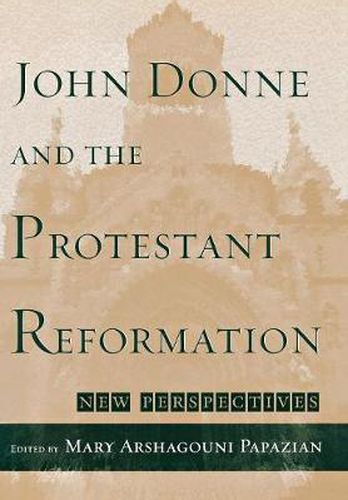Readings Newsletter
Become a Readings Member to make your shopping experience even easier.
Sign in or sign up for free!
You’re not far away from qualifying for FREE standard shipping within Australia
You’ve qualified for FREE standard shipping within Australia
The cart is loading…






This title is printed to order. This book may have been self-published. If so, we cannot guarantee the quality of the content. In the main most books will have gone through the editing process however some may not. We therefore suggest that you be aware of this before ordering this book. If in doubt check either the author or publisher’s details as we are unable to accept any returns unless they are faulty. Please contact us if you have any questions.
The early transition from Catholicism to Protestantism was a complicated journey for England, as individuals sorted out their spiritual beliefs, chose their political allegiances, and confronted an array of religious differences that had sprung forth in their society since the reign of Henry VIII. Inner anxieties often translated into outward violence. Amidst this turmoil the poet and Protestant preacher John Donne (1572-1631) emerged as a central figure, one who encouraged peace among Christians. Raised a Catholic but ordained in 1615 as an Anglican clergyman, Donne publicly identified himself with Protestantism, and yet scholars have long questioned his theological orientation. Drawing upon recent scholarship in church history, the authors of this collection reconsider Donne’s relationship to Protestantism and clearly demonstrate the political and theological impact of the Reformation on his life and writings. The collection includes 13 essays that together place Donne broadly in the context of English and European traditions and explore his divine poetry, his prose work, the
Devotions Upon Emergent Occasions , and his sermons. It becomes clear that in adopting the values of the Reformation, Donne does not completely reject everything from his Catholic background. Rather, the clash of religion erupts in his work in both moving and disconcerting ways. This collection offers a fresh understanding of Donne’s hard-won irenicism, which he achieved at great personal and professional risk.
$9.00 standard shipping within Australia
FREE standard shipping within Australia for orders over $100.00
Express & International shipping calculated at checkout
This title is printed to order. This book may have been self-published. If so, we cannot guarantee the quality of the content. In the main most books will have gone through the editing process however some may not. We therefore suggest that you be aware of this before ordering this book. If in doubt check either the author or publisher’s details as we are unable to accept any returns unless they are faulty. Please contact us if you have any questions.
The early transition from Catholicism to Protestantism was a complicated journey for England, as individuals sorted out their spiritual beliefs, chose their political allegiances, and confronted an array of religious differences that had sprung forth in their society since the reign of Henry VIII. Inner anxieties often translated into outward violence. Amidst this turmoil the poet and Protestant preacher John Donne (1572-1631) emerged as a central figure, one who encouraged peace among Christians. Raised a Catholic but ordained in 1615 as an Anglican clergyman, Donne publicly identified himself with Protestantism, and yet scholars have long questioned his theological orientation. Drawing upon recent scholarship in church history, the authors of this collection reconsider Donne’s relationship to Protestantism and clearly demonstrate the political and theological impact of the Reformation on his life and writings. The collection includes 13 essays that together place Donne broadly in the context of English and European traditions and explore his divine poetry, his prose work, the
Devotions Upon Emergent Occasions , and his sermons. It becomes clear that in adopting the values of the Reformation, Donne does not completely reject everything from his Catholic background. Rather, the clash of religion erupts in his work in both moving and disconcerting ways. This collection offers a fresh understanding of Donne’s hard-won irenicism, which he achieved at great personal and professional risk.